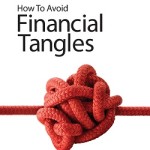 Back when I worked on the bond sales desk at Goldman, many of us talked about what our “Number“ was – the “Number” obviously representing “Fuck You Money.”
Back when I worked on the bond sales desk at Goldman, many of us talked about what our “Number“ was – the “Number” obviously representing “Fuck You Money.”
“Fuck You Money”, if you haven’t worked on Wall Street, represents the amount of money you’d need in order to professionally disregard anybody else’s needs. In other words, the amount you need to walk away from your desk, go out the door, and never look back.
My sales partner, and friend, who I sat next to on the mortgage bond desk, kept a spreadsheet on his desktop calculating precisely how close he was at any given point to achieving his “Number.“ He’d been at Goldman (and another firm before that) longer than me, and he stayed about 5 years longer than I did. Although I never came out and asked him directly after he left GS, I’m pretty sure he made his “Number.”
I left Goldman in 2004, long before earning my own personal “Fuck You Money.”
Sometime after 9/11 happened[1] I was no longer willing to live an unhappy daily life, focusing on delayed gratification, the key factor for me to accumulate enough for my “Number.”[2]
I’ve been thinking about what it really means to be wealthy for a couple of reasons. One, because its bonus day today at Goldman, and two, because I’m teaching a course this semester on personal finance.
Preparing for this course has pushed me to reflect, before the college students ask me, on the best definition of wealthy.
My answer to them will be something like this:
- Wealthy can’t be determined by a single, static, net-worth number, because I know that Mike Tyson at one point earned $30 million per fight and over $300 million in his lifetime, but subsequently declared bankruptcy in 2003. For some people, like Tyson, their number is larger than $300 million, and probably can never be achieved.
- What I know from the Tyson example is that on-going lifestyle expenses play a big role in determining whether you are wealthy, at almost any level of asset accumulation. Some people can be wealthy on an accumulated $3 million net worth, while other people can be poor and bankrupt with $300 million in earnings.
- 19th Century English authors Jane Austen and Anthony Trollope tell me a great deal about how to understand wealth, and, in particular, the role of passive income. At that time in England, the landed gentry earned passive income from family-owned real estate, real estate which would never be willingly sold.[3] Unlike today, the landed gentry never calculated their net worth in terms of the real estate value, but only in terms of the passive annual income to be derived from the land. Every hero and heroine of Austen and Trollope novels has an income, known to all polite society and expressed in thousands of pounds per year; their “Number” follows them around as they seek appropriate romantic matches. It’s as if they are marriage-seeking Sims with a number floating above their animated-avatar heads.[4]
- One meaning of wealthy that exists in our popular culture is that if you are wealthy you never need to work again, like landed gentry. Because 19th Century landed gentry did not work for a living,[5] I like the analogy between the “Number” associated with every Austen and Trollope character, and “The Number” that we think makes us wealthy today. The best way of knowing whether you’re wealthy, by this analogy, is to compare the passive income you derive from your assets on an annual basis with your yearly lifestyle expense. If your passive income exceeds your expenses for the rest of your life, guess what? You’re wealthy! I specifically urge my Personal Finance students to look at it this way because, like the 19th Century landed gentry, you shouldn’t depend on selling your assets to cover expenses,[6] since that’s a non-sustainable practice.[7]
- Time, specifically your expected life span, plays a big factor in my definition of wealthy. If you have enough income or assets to cover your expenses for only the next three years, but you’re only going to live for one more year, you’re wealthy three times over![8] If your passive income and assets are high right now, but will run out before you die, you’re far from wealthy. A young person needs far more passive income and assets to cover them for their expected remaining life, while an older person may be much closer to wealthy – by my definition – as a result of having less time on earth.
- Passive income in modern times rarely derives solely from real estate income, but rather comes from many sources such as dividends, business profit-sharing, pensions, annuities, fixed income interest, and social security payments, in addition to traditional, real-estate derived income.
A More Nuanced Version of being wealthy doesn’t involve saying “Fuck You” to work
Hold on there a moment! I’m not done yet with my definition of wealthy. My fullest definition of wealthy adds an important factor to the ‘Do you have enough to walk away from work?’ question[9]. After all, work gives meaning to life. Work grounds us, puts us in the flow of society, and makes us feel useful to others. Work in that sense is a good thing unto itself. So how do I integrate that with my definition of being wealthy?
I think wealthy means not so much having “Fuck You Money,” or reaching your “Number,” but rather having the option to choose work that you would do regardless of the level of compensation.
So here it is, my definition of wealthy: If you have enough assets plus passive income to cover your personal lifestyle expenses for the rest of your life, and that money allows you to work at something you love – without concern for the amount of compensation – then you are wealthy.
Let’s say you love feeding the less fortunate. If you have enough passive income in excess of your expenses that you could ladle soup to the homeless – even though that service pays you almost nothing – then you are wealthy.
If your greatest joy in life consists of reading novels and writing your memoirs every day,[10] and you can live cheaply enough to make that happen for the rest of your life, then you are wealthy.
If you perform eye surgery for a living, and you live for the joy of returning sight to the blind, and you can afford to do so even if when Medicare cuts your reimbursements to one-tenth of their current level, then you are wealthy.
If you would sell bonds for a living, for the sheer joy itself – the act of efficiently allocating capital or whatever you tell yourself – then you don’t care what your actual bonus is today from Goldman. So what if you’re down 25% from last year, or you’re up 100%? Who cares? You love it! If you’d do it anyway, and you can afford to do it, then you are a wealthy person.
If, however, you’re working at something, day in and day out, that you would quit as soon as you made enough money, I would argue you’re far from wealthy. You may be covering your costs and accumulating assets, but you’re even farther from the ultimate goal of wealth than you think.
[2] Also, I wasn’t the world’s greatest bond salesman, so it was going to take me quite a bit longer than some to make my “Number.”
[3] To sell real estate would be to announce to the world that you no longer belonged to polite society, so in effect the market price of most real property was meaningless and incalculable. Family-owned real estate meant much more than price. To lose your land due to excessive indebtedness, a common theme of these novels, was to lose your place in the world.
[4] The romantic plot of all these novels goes something like this: “Demure Lizzy Bernnet, with her mere 300 pounds per year, could not possibly hope to make a match with the dashing Mr. Farcy and his 20,000 pounds per year. She’ll surely need to settle for the homely parson the widower and his modest 500 pounds per year. But plump narrow-eyed Fanny Bobbins and her 12,000 pounds per year, however, seems to have caught the eye of Col. Wigglesworth and his 1,200 pounds. Oh how happy the Colonel will be with this match!” etc.
[5] Ah, the English ideal!
[6] Interestingly, 401K and IRA rules mandate that Americans withdraw at least some of their retirement savings from their accounts each year, after age 70, in effect forcing us to sell assets to cover expenses. The 19th Century English landed gentry do not approve!
[8] At the extreme example, everyone who is debt free on their deathbed is ‘wealthy’ since they need no more assets or income to cover their expenses.
[9] As a good austere New Englander, I cannot get away from the difference between my home culture and the English 19th Century ideal of not working. So I need to amend the idea of wealthy so that it does not celebrate idleness.
[10] Like the greatest of all the English landed gentry, Bilbo Baggins, writing the story of his travels as he lives frugally in Rivendell, off Elrond’s largesse.
Post read (96071) times.




